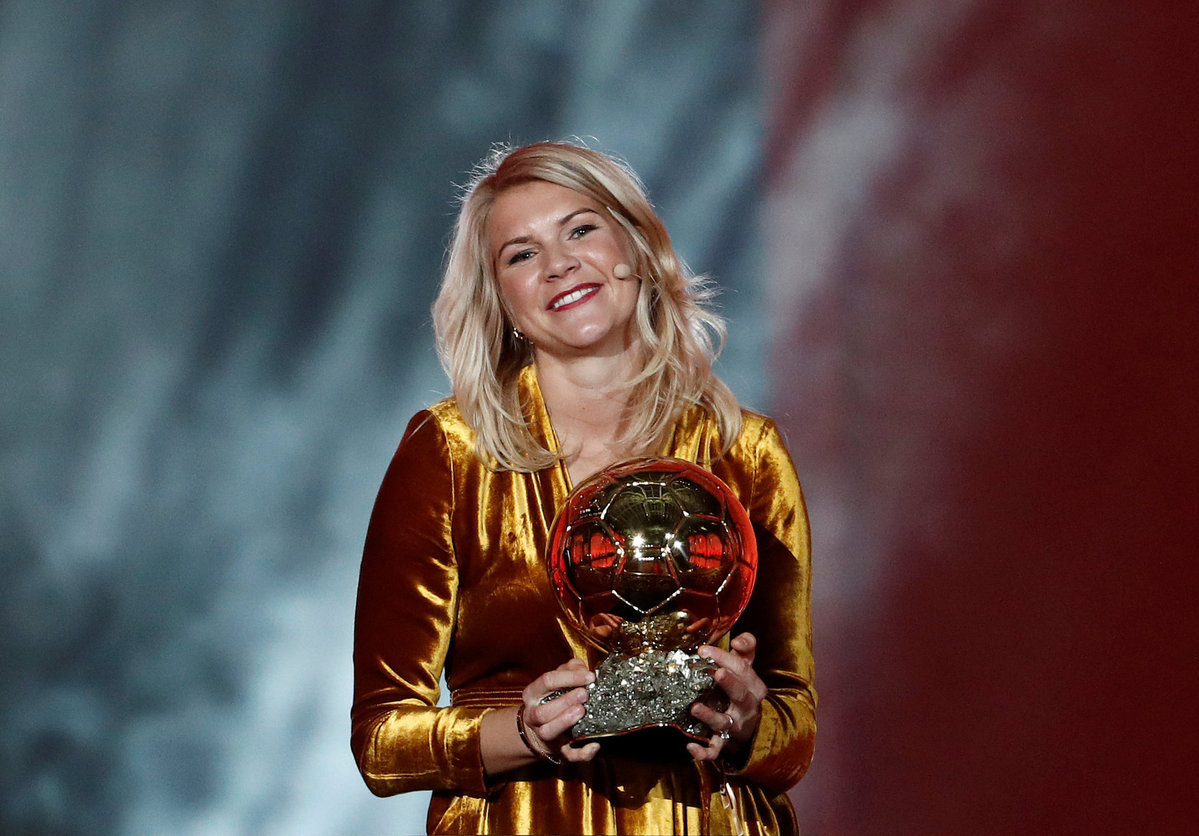Twerking the tip of sexism iceberg


Ballon d'Or host's bad 'joke' was just the latest example of how sport clings to old prejudices
LONDON - Last week marked the inaugural presentation of the female Ballon d'Or, the most prestigious individual prize in women's soccer.
But the historic victory for the women's game was overshadowed by sexism, when French master of ceremonies Martin Solveig asked winner Ada Hegerberg to "twerk" on stage.
"You've seen that I prepared a little celebration for (France forward) Kylian (Mbappe) so we said we're going to do something similar. Do you know how to twerk?" Solveig asked the Norwegian player as she accepted the prize.
Twerking is a sexually suggestive dance move.
Following a backlash on social media, Solveig apologized in a Twitter video for his comments, which he described as "a joke, probably a bad one".
Among the critics was former tennis world No 1 Andy Murray.
"To everyone who thinks people are overreacting and saying it was just a joke, it wasn't," Murray tweeted. "I've been involved in sport my whole life and the level of sexism is unreal."
The twerk request is not the first time this year that a sporting event has been tarnished by sexism. Here are five other examples:
Sumo shocker
In April, a referee ordered female medics to leave a sumo wrestling ring in Maizuru, in southern Japan, after they rushed to perform first aid on the city's mayor, who had collapsed.
The women's expulsion from the ring reignited a debate about the sexist traditions of the ancient sport.
Women are banned from entering the ring on the grounds that it is sacred and their presence, considered "unclean", would pollute it.
The Japan Sumo Association does not allow female wrestlers to compete professionally.
The rule has also prevented female politicians from handing out awards inside the ring.
Getting shirty
At tennis' US Open in August, French player Alize Cornet received a code violation for changing her top on court after the umpire branded her outfit swap "unsportsmanlike".
Umpire Christian Rask's decision led to a volley of complaints about double standards in tennis.
Judy Murray, mother of Britain's three-time Grand Slam champion Andy, said on Twitter that male players often change their shirts on court without receiving a violation.
Serena's tight fit
In May, tennis superstar Serena Williams won the French Open, her first Grand Slam victory since having a baby, wearing a catsuit akin to those featured in the movie Black Panther.
Williams said her decision to wear the skin-tight bodysuit was partly to do with health concerns about blood clots she has developed since giving birth last year.
Bernard Giudicelli, president of the French Tennis Federation, said in August that Williams would be banned from wearing her catsuit at the tournament in future, as he announced a stricter dress code for players.
"I believe we have sometimes gone too far," Giudicelli said.
"Serena's outfit this year, for example, would no longer be accepted. You have to respect the game and the place."
The decision caused outrage, with fans accusing tournament officials of sexism, racism and ignorance of health concerns.
Tweet 'n' sour
Britain's Football Association (FA) was accused of sexism in October after sharing a picture of the England women's team with the caption: "Scrub up well, don't they?"
The comment caused a furor on social media, with many criticizing the FA for focusing on the women's appearance instead of their athletic prowess.
"Would that comment be made if it was the men's team?" one person wrote on Twitter.
"'Scrub up well' really @Lionesses? It's 2018, not 1960," another person commented.
Adding insult to injury
Several of England's soccer teams have cut injury and sick pay for female players, providing them with less benefits than their male counterparts.
A Reuters report found that women's contracts were amended to allow clubs to fire those unable to play due to injury for three months, compared with the 18-month injury pay stipulated in contracts in the men's Premier League.
Mads Oland, director of the Danish Players' Union, which includes players at England clubs, said the difference in injury and sick pay revealed a "clear imbalance." between men's and men's soccer.
Reuters
Most Popular
- Beijing Half Marathon winner disqualified
- F1 'ten years' away from more Chinese drivers, says Zhou
- Coastal Rizhao set for major sports, leisure events
- China's athletes have earned places in 165 events for Paris Olympics
- No 'three-peat' for Pep as City pays penalty for profligacy
- Despite security risks, preparations for parade on Seine 'in full swing'






























